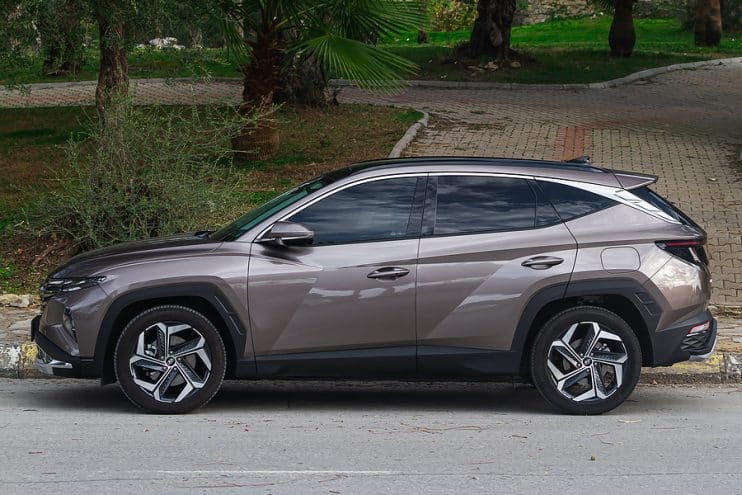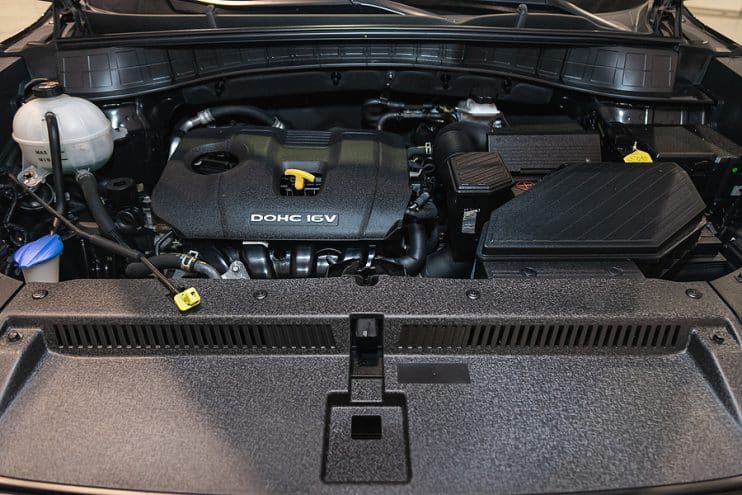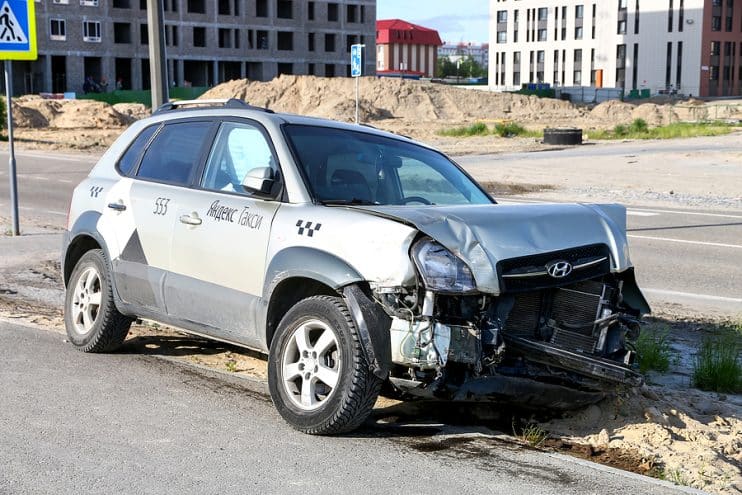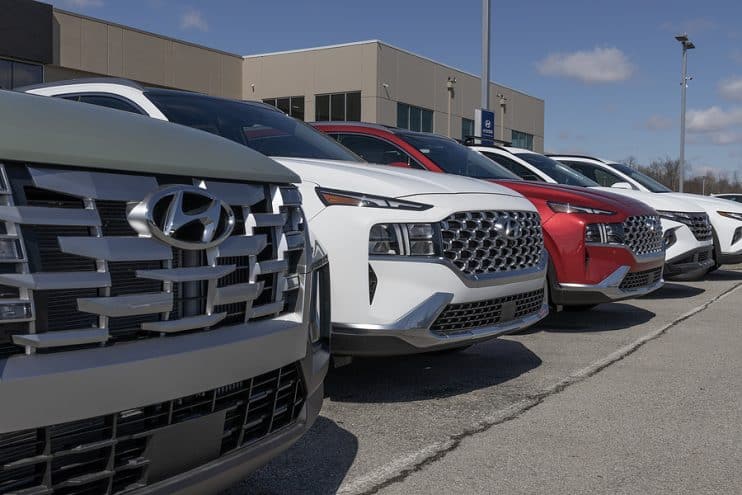
The Hyundai Tucson is a popular compact crossover SUV. In production since 2004, it’s known for its modern and stylish design. Over the years, it has evolved to feature bold design elements like the distinctive cascading grille and sharp lines. The Tucson also offers a comfortable interior with various features, including leather upholstery, infotainment systems and smartphone integration. It provides a range of engine options, including petrol, diesel, hybrid, and plug-in hybrid.
According to a 2022 review by What Car?, the Hyundai Tucson is relatively problem-free. However, drivers and owners have reported issues with the gearbox, engine problems and excessive clutch wear, among other faults.
We take a closer look at some of the most common problems and faults associated with the Hyundai Tucson and give you the lowdown on whether it’s considered a reliable car to purchase and drive.
Table of contents:
- What are the most common faults with the Hyundai Tucson?
- Is the Hyundai Tucson a reliable car?
- What’s the best year of the Hyundai Tucson?
What are the most common faults with the Hyundai Tucson?
The Hyundai Tucson has a range of recurrent issues to be aware of, reported by drivers. These include the following:
Transmission shifting / gearbox issues
One of the most frequent problems reported by Tucson owners is related to transmission shifting. Common transmission issues reported with the Hyundai Tucson include:
- Rough or delayed shifting: Some Tucson owners have experienced rough or delayed shifts, which can lead to an unpleasant driving experience. These issues may result in jerky or jarring gear changes, making driving difficult.
- Transmission software recalibration: In many cases, addressing the rough or delayed shifting involves recalibrating the transmission software. This usually requires visiting a Hyundai dealership where technicians can update the software to improve transmission performance.
- Transmission failure: While less common, complete transmission failure has also been reported, resulting in the vehicle not moving or shifting gears correctly.
Hyundai has issued recalls related to transmission issues in some Tucson model years, a sign that Hyundai acknowledges the problem and is addressing it where it can.

Engine failure, knocking and other noises
A serious issue known to Hyundai is the issue of engine knocking or ticking. High mileage Tucsons over 150k miles are susceptible to sudden engine failure, with Hyundai recalling almost 100,000 units because of the problem. The issue was tracked down to a faulty connecting rod bearing.
Hyundai’s fix was to install a Knock Sensor Detection System, which alerts drivers to stop if the engine starts knocking or ticking.
Airbag problems
Some Tucson models have been affected by a defect in the airbag control module, increasing the risk of the passenger-side airbag deploying incorrectly during a collision.
Hyundai has issued recalls to address this issue, with costs typically covered by the manufacturer.
No sound from the speakers
Owners have reported issues with the sound system, where speakers suddenly stop emitting sound, affecting various audio sources.
This problem is often related to a software glitch and can be resolved with a hard reset by disconnecting and reconnecting the negative battery terminal.
Door lock issues
Drivers have reported problems with the car’s electrical door locks randomly locking, unlocking, or failing to respond to the key fob or interior switches. The root cause is a malfunctioning Actuator Control Module (ACM), which controls the power locks.
Owners have reported being locked out of their vehicles or finding them unlocked unexpectedly due to the faulty ACM triggering the locks. Replacing the ACM has resolved the issue for some owners.
Problems with air conditioning
Air conditioning woes have surfaced as a concern among some Hyundai Tucson owners. Issues can range from complete AC system failures to weaker air output and warm air blowing from the vents.
The culprits behind these AC troubles may vary, with possible causes including blown fuses, insufficient refrigerant levels, or a malfunctioning compressor. Another potential snag is a leak in the AC system, often attributed to loose hoses or connections. Detecting leaks is crucial, as timely repairs can prevent further damage.

Forward collision system
Owners of the Tucson have reported issues with the forward collision system, which is designed to help prevent or mitigate collisions by alerting the driver and, in some cases, applying the brakes automatically.
Some drivers have experienced false alarms from the forward collision system, failing to detect obstacles or vehicles in front of the car, and inconsistencies in the performance of the safety system. Others have received error messages or warnings about the forward collision system on their dashboard, indicating a potential problem.
Addressing these issues may require software updates or recalibrations at a Hyundai dealership to improve the system’s performance.
Acceleration issues
Some Tucson drivers have experienced sluggish or delayed acceleration when pressing the accelerator, especially in older models from the early 2000s. They report sluggish or reduced acceleration, affecting their ability to pass vehicles on the motorway or accelerate from a stop.
Possible causes of this issue may be clogged fuel injectors, failing fuel pumps or sensors, airflow restrictions, or transmission problems. The problem affects higher-mileage vehicles more.
Headlights
Tucson owners frequently report problems with dim, flickering headlights and premature bulb burnouts across multiple model years. Drivers often say that the low beams aren’t enough for nighttime driving while the high beams are too bright.
Possible causes are faulty headlight components, faulty seals that let water in and issues with the bulbs used in some models.
Is the Hyundai Tucson a reliable car?
When it comes to reliability and safety, the Hyundai Tucson is a solid choice. Carbuyer.co.uk says it is dependable, noting Hyundai’s track record of producing reliable vehicles.
Backed by a reassuring five-year/unlimited-mileage warranty, Hyundai has built a reputation for crafting dependable cars in recent years. The outgoing Tucson even secured a respectable 64th place among the top 75 models in the CarBuyer Driver Power survey.
In a recent assessment by Auto Express, the fourth-generation Tucson earned a perfect five-star rating from Euro NCAP during its 2022 evaluation. The vehicle received an impressive 86% passenger protection score, underlining its safety commitment.
But like any car, consistent maintenance and regular servicing are essential. You may need to replace components occasionally with new or used Hyundai Tucson parts to keep the vehicle in good shape.

What’s the best year of the Hyundai Tucson?
The 2023 Hyundai Tucson is a strong competitor among compact family SUVs, offering practicality, a well-equipped interior, and stylish looks, as rated by Parkers. The car’s interior is spacious, upmarket, and packed with features. It’s also noteworthy for its focus on electrification, although it doesn’t offer a diesel engine option, which some of its rivals do.
If you’re looking to buy a used Tucson, the 2018 model year is a good choice due to its reliability. The 2020, 2021, and 2022 models are also reliable options. However, it’s best to avoid Tucson models from 2011 to 2018, except for the 2013 model year, as reports of various issues, including engine problems, poor acceleration, and even engine fires, come with these models.

.png)